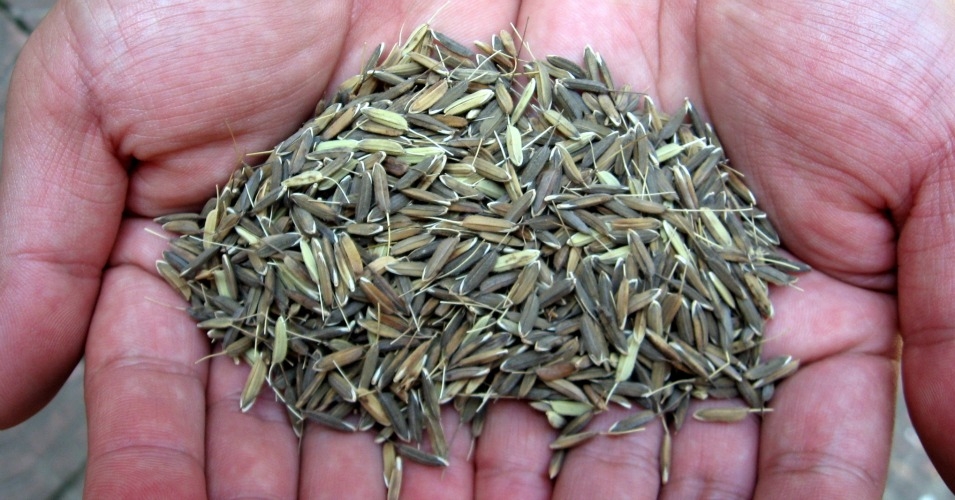Groups are calling on the Department of Justice to reject the deal to protect food supply
By Sarah Lazare, staff writer for Common Dreams. Published 12-11-2015

“Just a handful of large chemical companies including Dow and DuPont already control most of the seed supply used to grow crops like corn and soybeans, as well as the herbicides that genetically engineered seeds are designed to be grown with,” said Wenonah Hauter of Food & Water Watch. (Photo: Desmanthus4food/Wikimedia/cc)
Watchdog groups are sounding the alarm after two of the oldest and largest corporations in the United States—DuPont and Dow Chemical—announced Friday plans to merge into a $130 billion giant, thereby establishing the world’s biggest seed and pesticide conglomerate.
The new behemoth, named DowDuPont, would then be split into “three independent, publicly traded companies through tax-free spin-offs,” according to a joint corporate statement marking one of the the largest deals of 2015.
These companies would focus on agriculture, material science, and “technology and innovation-driven Specialty Products company,” the statement continues. Together, they would form the second-largest chemical company world-wide.
The merger, if it goes through, is expected to slash numerous jobs.
And it would expand the influence of two Big Ag players, with the combined venture retaining control over “17 percent of global pesticide sales and about 40 percent of America’s corn-seed and soybean markets,” according to the calculations of Washington Post analysts.
Rights groups warn that this large share would be very bad for people and the planet—and called on the Department of Justice to block the merger.
“Just a handful of large chemical companies including Dow and DuPont already control most of the seed supply used to grow crops like corn and soybeans, as well as the herbicides that genetically engineered seeds are designed to be grown with,” said Wenonah Hauter, executive director of advocacy organization Food & Water Watch, in a statement released Friday.
“Any merger that consolidates this market into fewer hands will give farmers fewer choices and put them at even more economic disadvantage,” Hauter continued. “And it will make it harder for agriculture to get off the GMO-chemical treadmill that just keeps increasing in speed. The Department of Justice needs to block this merger to prevent the further corporate control of the basic building blocks of the food supply.”
According to the New York Times, “Despite the eventual breakup, the deal would undergo rigorous antitrust scrutiny for all three companies, particularly the agricultural chemicals company.”
Diana Moss, president of the American Antitrust Institute, confirmed Friday that “any merger on the agricultural inputs side of DuPont and Dow will get antitrust scrutiny.”
Nonetheless, watchdog groups warn that the merger announcement is a bad sign, in an industry that has already undergone dramatic consolidation.
“Some of the markets for biotech and seeds are highly concentrated, which has been driven by Monsanto having made so many acquisitions in the past. If you put a new merger in the this mix, it’s going to raise concerns about leaving only two or maybe three firms,” Moss explained. “Farmers could be squeezed even more and consumers could pay higher prices.”
Robert Reich, University of California at Berkeley professor and former Secretary of Labor, took to social media to warn that the merger would result in greater political power for the corporation, as well as “higher prices for you for food and a variety of other products.”
“Crop prices continue to drop, so the only way these giant companies can increase earnings is by increasing their market power to raise prices (Monsanto is also on the prowl to buy a Big Ag or chemical company),” Reich continued. “That means more of your paycheck will be going to them, directly or indirectly.”

